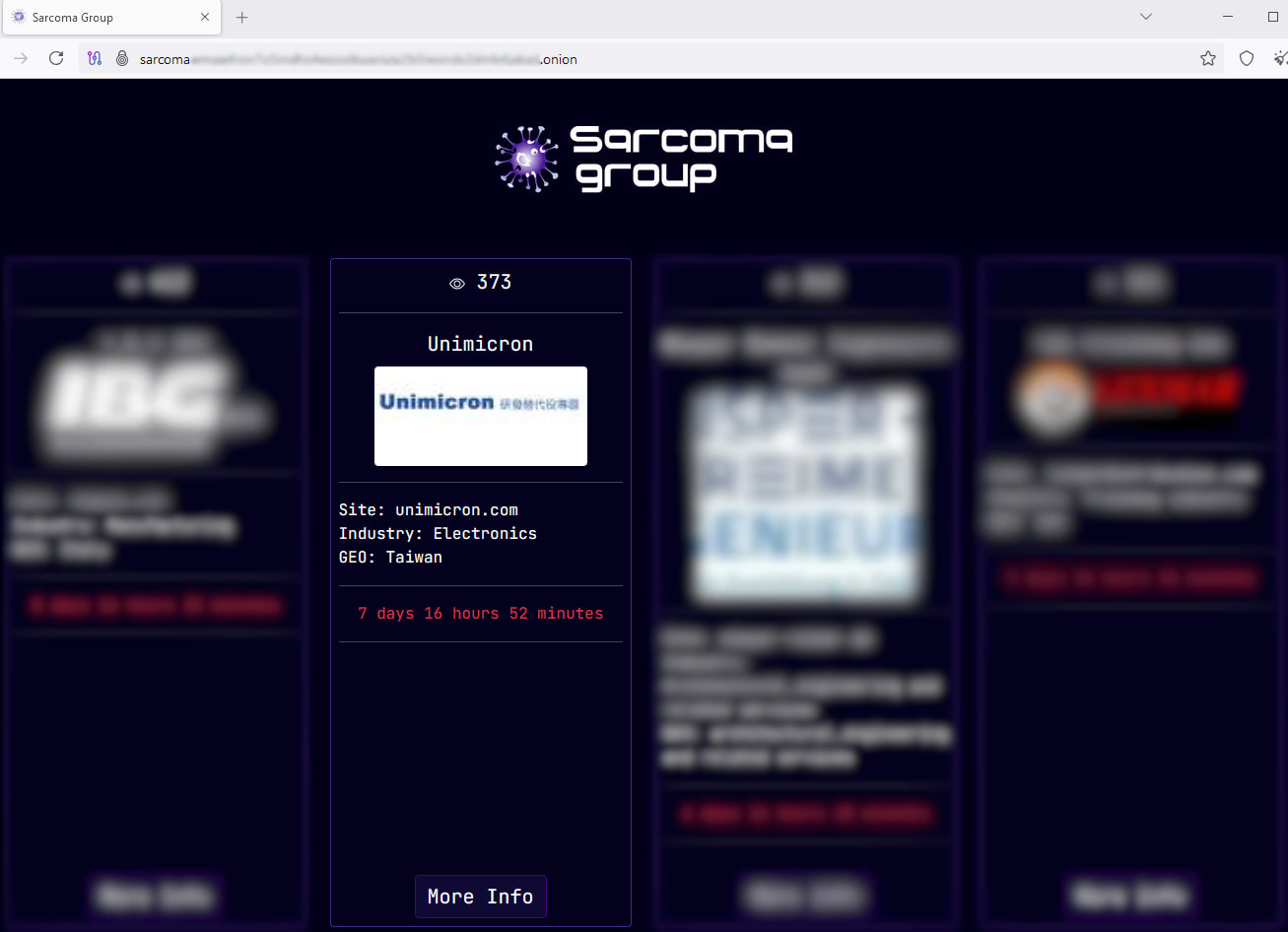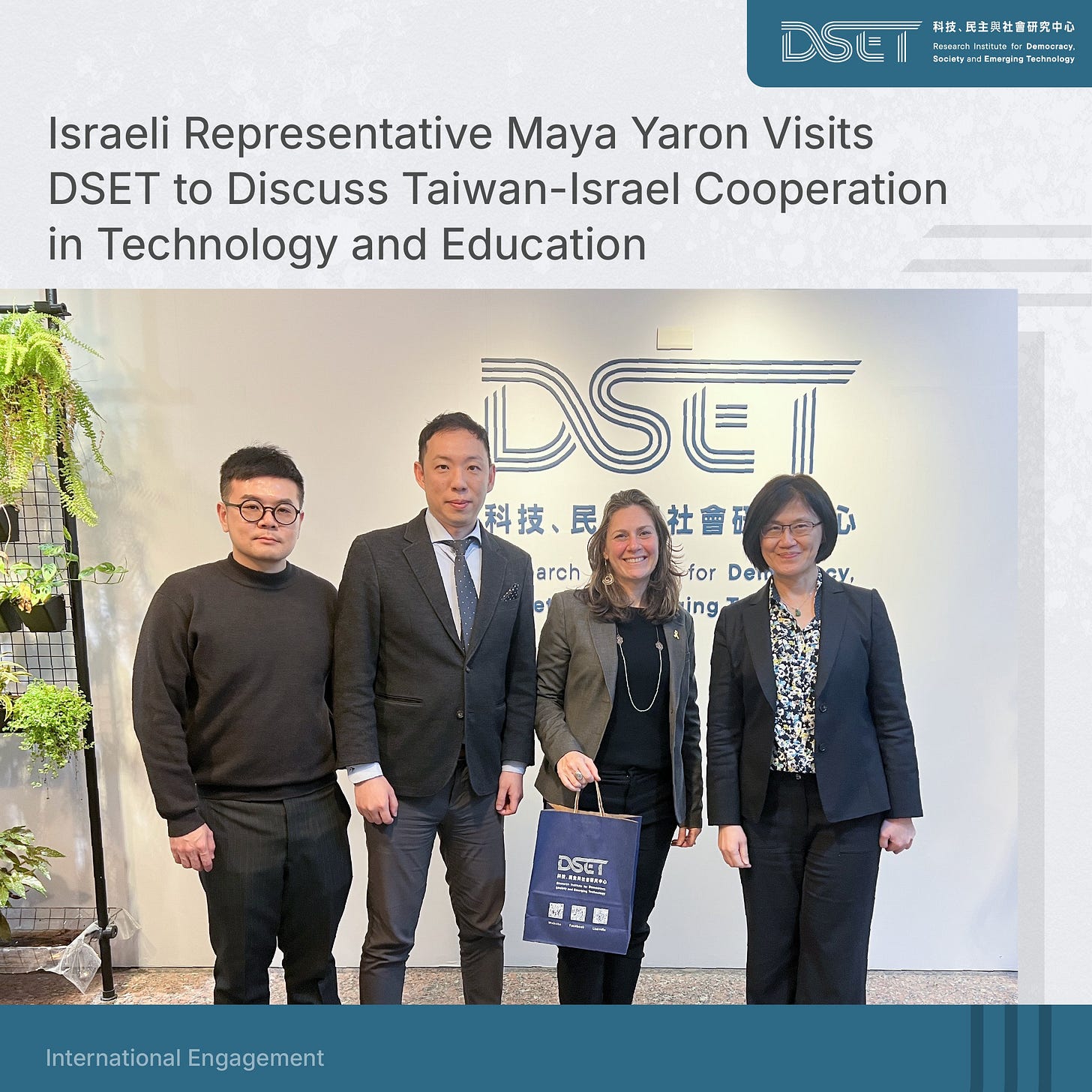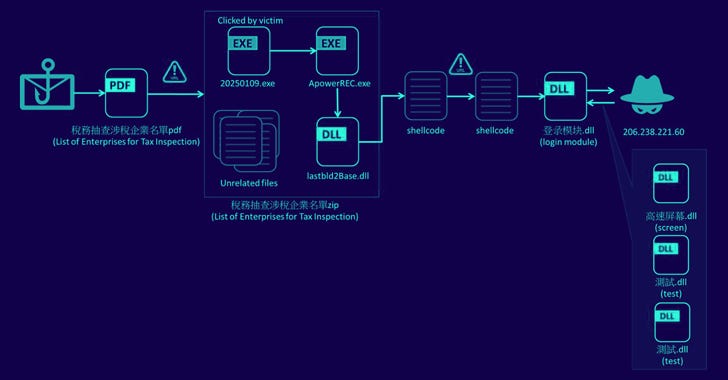News Roundup: February 2025
Bite-sized news and updates on the latest in Taiwan cybersecurity
Taiwan’s Cybersecurity Leadership: TeamT5 and CyCraft’s Strategic Edge
February 2, 2025
Taiwanese cybersecurity firms TeamT5 and CyCraft continue to drive cyber resilience leadership, offering cutting-edge threat intelligence and AI-driven security solutions. TeamT5 has begun to release a three part case study series, with the first, APT Threat Landscape in APAC 2024: Blurred Lines of Cyber Attacks, analyzing how APT groups targeting Taiwan are evolving, with attackers increasingly leveraging open-source tools and supply chain vulnerabilities to infiltrate government and IT sectors. Meanwhile, CyCraft’s Dr. Cheng-Lin Yang and Pei-Xi Xie are speaking at SECCON in Japan on Temporal Forensics: Harnessing AI for Accurate Timeframes in Mulilingual Cybersecurity Reports. Their presentation showcases how the company’s advancements in AI-powered forensics are strengthening Taiwan’s cyber defense posture, helping organizations detect hidden attack patterns and timeline discrepancies that traditional security models often miss.
Policy Recommendation
Taiwan should establish a Cyber Threat Fusion Center, integrating APT intelligence, AI-powered forensics, and real-time monitoring to enhance rapid response capabilities. Additionally, fostering cross-border cybersecurity partnerships with Japan, the US, and EU nations will bolster Taiwan’s defenses against state-backed cyber intrusions and ensure sustained leadership in cyber threat research and response.
Recent Cyberattacks and Breaches in Taiwan
February 5, 2025
Taiwan has faced a surge in cyberattacks targeting key industries, exposing persistent security gaps across its corporate and infrastructure networks. The recent ransomware attack on Taiwanese company, Elaser, disrupted operations and underscored the evolving sophistication of cybercriminal tactics. The shipping sector was also impacted, with Yang Ming Marine Transport Corporation swiftly mitigating an attempted cyber intrusion, demonstrating the growing need for maritime cybersecurity resilience. Semiconductor firms, a critical pillar of Taiwan’s economy, have become prime targets, as evidenced by Holtek Semiconductor's breach, which put sensitive candidate data at risk. Around the same time, Zyxel, a Taiwanese networking equipment manufacturer, issued a warning regarding active exploitation of zero-day vulnerabilities in its products, emphasizing the urgent need for enhanced patch management and vendor accountability. Additionally, TWNComm, a major telecommunications provider, was targeted by ransomware, raising concerns over the security of Taiwan’s communication infrastructure. Further exacerbating these concerns, Unimicron, a leading PCB manufacturer, was breached by Sarcoma ransomware operators, threatening the integrity of Taiwan’s high-tech supply chain and reinforcing the need for stronger cybersecurity controls across industrial sectors. These incidents highlight Taiwan’s exposure to both state-sponsored and financially motivated cyber threats, underscoring the urgency of enhancing sector-wide cyber resilience.
Policy Recommendation
Taiwan must establish a National Cyber Incident Response and Recovery Framework that integrates real-time threat intelligence sharing across industries and enforces mandatory cyber hygiene standards for critical infrastructure operators. Expanding public-private collaboration through cybersecurity drills, such as red teaming exercises tailored to industry-specific threats, will improve breach detection and containment. Additionally, financial incentives for organizations adopting zero-trust security architectures, combined with stricter compliance requirements for patch management, can significantly reduce attack surfaces and mitigate operational disruptions.
Taiwan’s AI-Driven Defense Against Disinformation
February 18, 2025
Taiwan is intensifying its fight against Chinese disinformation campaigns by leveraging artificial intelligence (AI) to preemptively counter false narratives before they spread online. Audrey Tang, Taiwan’s former Minister of Digital Affairs, highlighted this initiative at the Munich Cyber Security Conference, emphasizing the use of AI-driven “Alignment Assemblies” to facilitate discussions on disinformation and enhance public resilience. This AI-assisted approach, coupled with Taiwan’s push for real-name verification for online advertisements, aims to mitigate Chinese influence operations that have escalated significantly, with the National Security Bureau reporting a 60% increase in such activities in 2024. Tang also noted that Taiwan’s democratic evolution, dating back to its first direct presidential election in 1996, proves that democracy and digital innovation can strengthen each other. Taiwan’s counter-disinformation strategy sets a precedent for democratic nations facing similar threats.
Policy Recommendation
To bolster its AI-powered disinformation countermeasures, Taiwan should establish an international coalition for AI-driven cognitive security, collaborating with partners such as Japan, the EU, and the US. This coalition could standardize threat detection methodologies, share real-time intelligence on malign influence operations, and develop AI models capable of detecting emerging disinformation tactics. Additionally, Taiwan should integrate AI moderation tools into domestic social media platforms to enhance content authentication and prevent foreign interference at scale.
RightsCon in Taiwan 2025
February 24-27, 2025
RightsCon, the world’s largest digital human rights conference marked the event’s first-ever hosting in East Asia — Taipei, Taiwan. This reflects Taiwan’s growing prominence in the global cyber and human rights community, as roughly 3,000 experts from 150 countries convened to discuss issues like AI governance, open-source tech in civic activism, and resisting digital oppression. To ensure local relevance, RightsCon organizers partnered with Taiwan’s Open Culture Foundation (OCF), a non-profit aligned with RightsCon’s open internet values and experienced in international tech convening. This partnership not only bolsters the conference’s multi-stakeholder diversity, but also highlights Taiwan’s role as a regional hub for digital rights and cybersecurity dialogue.
Policy Recommendation
Taiwan should use RightsCon to introduce a Taiwan Digital Rights Framework, aligning with GDPR principles to enhance data privacy and cybersecurity laws. This initiative would strengthen legal protections against digital threats, promote responsible data governance, and position Taiwan as a leader in regional cybersecurity and digital rights.
Taiwan-Israel Cybersecurity and Tech Cooperation Expands
February 27, 2025
Taiwan and Israel are advancing cybersecurity and technology collaboration, with Israeli Representative Maya Yaron visiting the Center for the Research Institute for Democracy, Society, and Emerging Technology (DSET) to discuss AI research, cyber defense, and tech education. Israel’s expertise in offensive and defensive cyber operations provides Taiwan with valuable insights into protecting critical infrastructure from nation-state threats. As Taiwan faces persistent cyber threats from China, deepening ties with Israel offers a proven model for cyber resilience, particularly in intelligence sharing and cyber R&D.
Policy Recommendation
Taiwan should formalize a Cybersecurity Memorandum of Understanding (MOU) with Israel, establishing joint threat intelligence-sharing, AI-driven cyber defense initiatives, and cyber training exchanges. Implementing elite cyber education programs, modeled on Israel’s Talpiot program, would enhance Taiwan’s cyber talent pipeline and strengthen its national security framework.
Winos 4.0 Malware – APT Attacks Against Taiwan Intensify
February 27, 2025
Chinese APT groups have launched Winos 4.0 malware, using phishing campaigns disguised as Taiwanese tax authorities to infiltrate government and corporate systems. The malware enables persistent access, keylogging, and data exfiltration, indicating a broader espionage campaign targeting Taiwan’s strategic sectors. The Silver Fox APT group has been identified as the primary actor behind these attacks, further reinforcing China’s sustained cyber aggression against Taiwan.
Policy Recommendation
Taiwan should accelerate Zero Trust adoption and mandate AI-driven endpoint detection solutions for all critical sectors. Enhancing real-time threat intelligence sharing with Japan, South Korea, and the US will strengthen Taiwan’s early warning system against APT cyber campaigns.
Other News
The Diplomat article Budget Cuts, Insufficient Implementation, and Weak Enforcement Are Undermining Taiwan’s Cyber Defenses examines critical shortcomings in Taiwan’s cybersecurity strategy. It outlines how reduced funding, poor enforcement, and gaps in execution are weakening the island’s ability to counter escalating cyber threats.
AmCham Taiwan’s Taiwan Business Topics article, Addressing AI-Driven Threats to Critical Infrastructure, warns that AI-powered cyberattacks pose a growing risk to Taiwan’s critical infrastructure, urging stronger defenses and regulatory frameworks.
AmCham Taiwan’s Taiwan Business Topics article, The Role of Taiwan’s National Institute of Cyber Security (NICS), sheds light on its a pivotal role in strengthening the country’s cyber resilience, but experts argue it needs greater funding and authority to address evolving threats.
CYFIRMA’s Executive Threat Landscape Report on Taiwan highlights escalating cyber threats from China, focusing on state-sponsored attacks targeting critical infrastructure and government entities.
Reportika’s Deeply Troubling DeepSeek AI analysis raises concerns about the Chinese AI company’s potential for mass surveillance and data exploitation, leading to bans in multiple countries, including Taiwan.
ARTICLE 19’s Cybersecurity with Chinese Characteristics: Digital Governance in the Indo-Pacific and the Taiwanese Alternative report examines China’s digital influence operations against Taiwan, detailing cyberattacks and disinformation campaigns aimed at destabilizing Taiwan’s democratic institutions.
CyberSec Taiwan
About CyberSec Taiwan
Your source for the latest news and analysis on Taiwan-centric cybersecurity.










